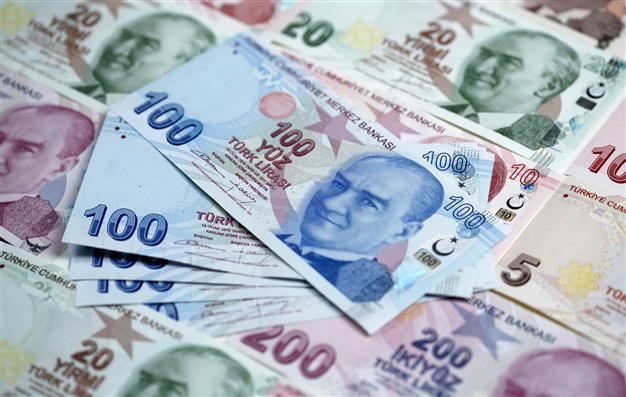Turkish Lira plunges to record low against dollar amid political uncertainties, security concerns
ISTANBUL

REUTERS photo
The Turkish Lira weakened to a fresh record low against the dollar at 2.86 on Aug. 17, as investors’ concerns about the growing prospect of an early election and an escalating conflict between Ankara and Kurdish militants continued. International operations to contain the Islamic State of Iraq and the Levant (ISIL) has also triggered pressure over Turkey’s currency, which has already been hit with a couple of other emerging currencies after a series of yuan depreciations and ahead of a possible rate hike by the U.S. Federal Reserve (Fed).Speaking at a meeting in Istanbul, Economy Minister Nihat Zeybekci, said the plummeting lira was “not a cause for concern” given the nature of Turkey’s overall debt structure. He warned against intervention, saying the market “would reach its own level.”
“In order to be able to reach cheaper sources, interest rates should have been lower than their actual levels. But we do not expect a decrease in rates as the Central Bank’s hands are not so powerful now,” Zeybekci said after a meeting in Istanbul on Aug. 17, as quoted by Reuters.
The plunge in the lira will affect companies with open positions or with revenue in lira and debts in foreign currencies, Zeybekci acknowledged.
“But there is nothing to feel concerned about in Turkey right now … We need to calm down. The markets will find their balance. Although companies that cannot build such balances will likely be harmed, I believe this situation is temporary,” he said.
The Central Bank’s meeting on Aug. 18 will be widely watched as markets await Governor Erdem Başçı’s possible moves in rate policy amid a continuing plunge in the lira’s value, which has lost over 18 percent of value so far this year. The currency has been the second worst performer in emerging markets after Brazilian real.
An emerging market rout kept Russia’s ruble, Malaysia’s ringgit and Israel’s shekel, as well as the Turkish Lira, under fire on Aug. 17, while another 1 percent drop for emerging market stocks left them at an almost four-year low. The shockwaves from last week’s devaluation of China’s yuan were starting to fade but there was plenty to worry investors elsewhere, Reuters reported.
“A new election possibility has further pushed investors to sell the lira. After Prime Minister Ahmet Davutoğlu said there would be no coalition government between the Justice and Development Party [AKP] and the Republican People’s Party [CHP] last week, the lira became the most sold emerging currency,” said TEB investment strategist Işık Ökte, quoted by Reuters.
Talks on forming a coalition between the AKP and the CHP broke down on Aug. 13, making an autumn election almost inevitable and leaving the incumbent ruling party having to turn to the Nationalist Movement Party (MHP) for support.
New coalition talks started between the two parties on Aug. 17 to decide whether to form a government or not, with just around a week left until the expiration of the 45-day deadline.
Davutoğlu has almost a week until the deadline to form a coalition, after which a fresh election is likely to be called.
















